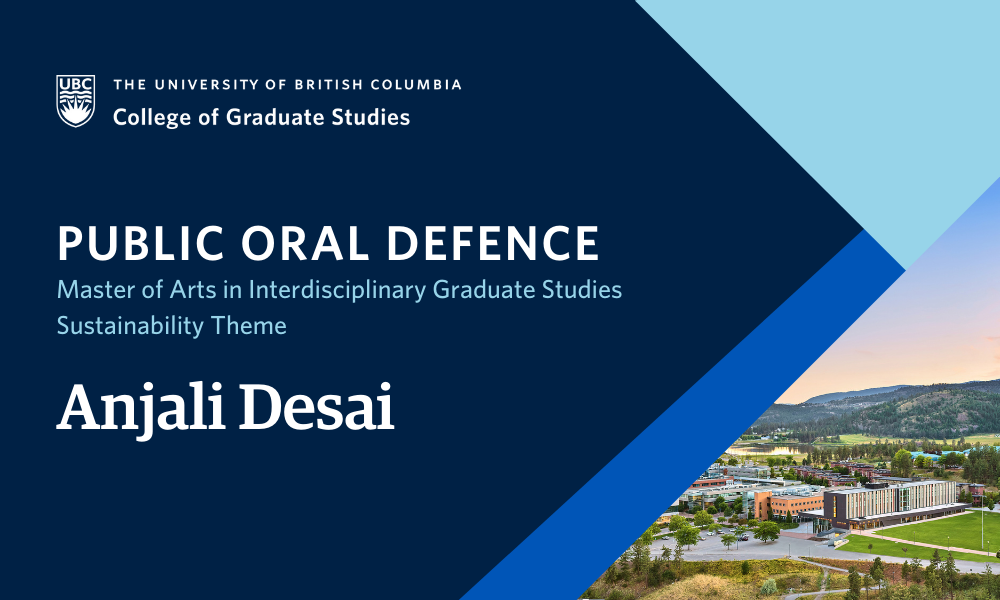
Thesis Defence: Non-State and sub-state actors in climate action: An exploratory case study on the University of British Columbia Okanagan and the City of Kelowna
April 17 at 9:00 am - 1:00 pm

Anjali Desai, supervised by Dr. John Janmaat, will defend their thesis titled “Non-State and sub-state actors in climate action: An exploratory case study on the University of British Columbia Okanagan and the City of Kelowna” in partial fulfillment of the requirements for the degree of Master of Arts in Interdisciplinary Graduate Studies – Sustainability theme.
An abstract for Anjali Desai’s thesis is included below.
Defences are open to all members of the campus community as well as the general public. Registration is not required for in-person defences.
Abstract
This thesis examines the roles and challenges of non-state and sub-state actors in driving climate action through the cases of the University of British Columbia Okanagan (UBCO) and the City of Kelowna (COK). Climate change is one of the most challenging issues of the 21st century, which requires collective action at the regional, national, and international levels to generate material change. The United Nations Framework Convention on Climate Change (UNFCCC) is a landmark international treaty established in 1992 to combat climate change that provides ongoing opportunities for member nations to negotiate and implement agreements to limit global warming.
Recent trends show a shift from the predominantly state-centric transnational systems to an increasingly pluralistic form of climate governance with an increased participation of non-state and sub-state actors. This research is grounded in governance theories such as polycentric governance, regime complexes, multi-level governance, and hybrid multilateralism, which provide a theoretical framework for further analysis. Particularly, higher learning institutions (HLIs) and cities are examined as key non-state and sub-state actors. This qualitative research employs a case study approach, complemented by a comprehensive literature review and semi-structured interviews with key stakeholders. Through thematic analysis, it examines UBCO and COK and analyzes their roles, challenges, and contributions within the broader governance landscape. The findings of this research are categorized into three broad themes of constraints: data insufficiency, resource constraints, and political constraints and institutional dynamics, each affecting the capacity of action. These disconnections identified are positioned as a part of the larger issue and key weakness of pluralistic governance frameworks, i.e., fragmentation. Recommendations include the establishment of formal partnerships between local actors to unlock the benefits of synergetic action as well as supporting the need for systemic and structural reforms at the administrative level. This study concludes by reiterating the importance of coordination as a crucial measure to negate the fragmentation of action that arises in the multi-actor climate action space.